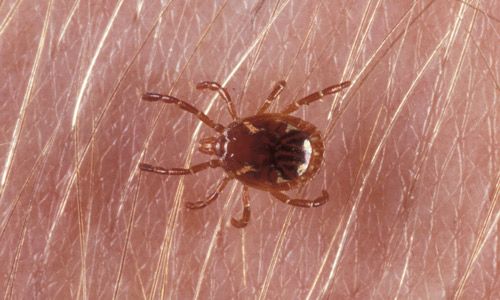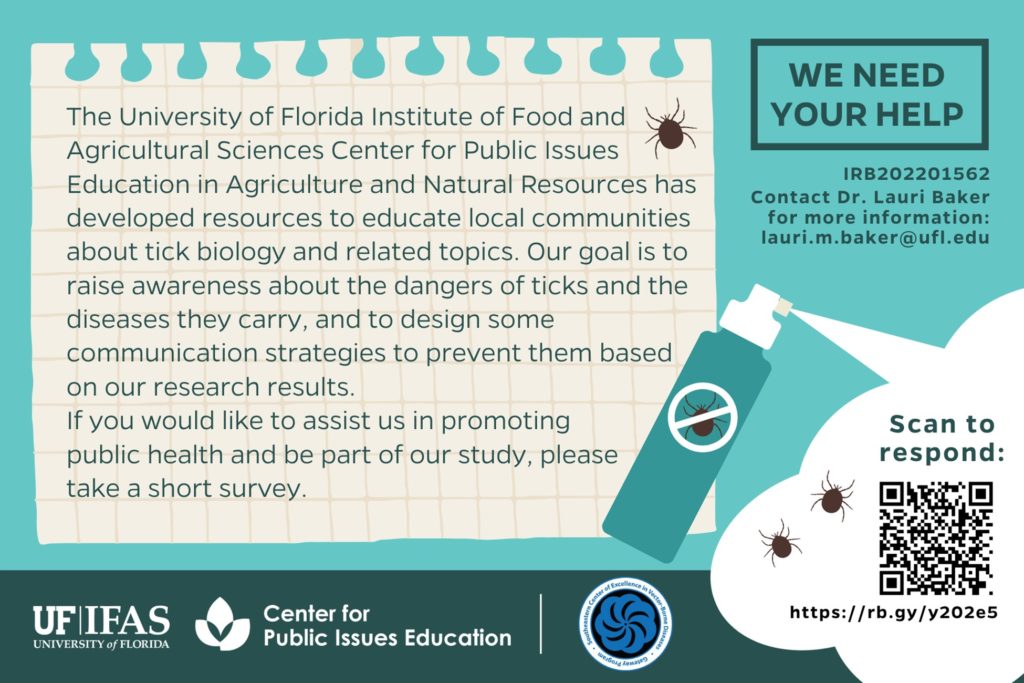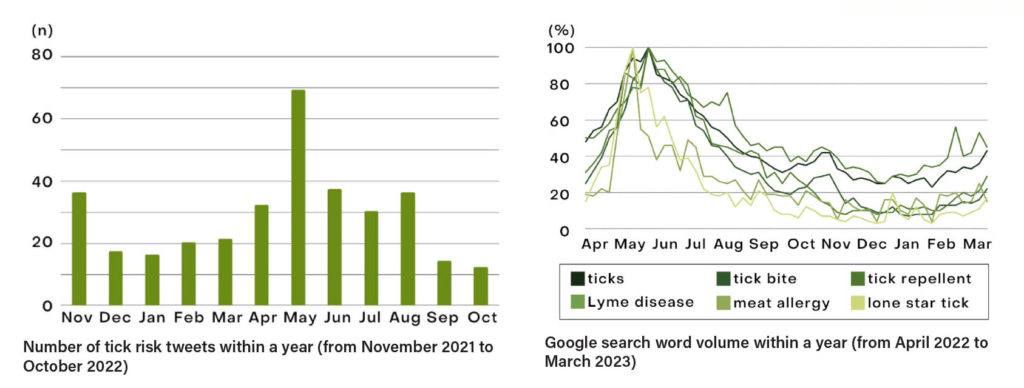
Photo by Lyle Buss, UF/IFAS
By Lauri M. Baker
As temperatures cool over the winter, you may be ready to breathe a sigh of relief as you enjoy a break from the summer’s constant annoyance of pests like mosquitos and ticks. But think again. An age-old belief is that ticks die off in winter months. Unfortunately, this is a myth.
While your chance of tick bites is lower in the winter, the Centers for Disease Control and Prevention says ticks still search for a host any time the temperature is above freezing. For residents in the Southeastern United States, this is most of the winter months.

The University of Florida Institute of Food and Agricultural Sciences Center for Public Issues Education in Agriculture and Natural Resources (PIE Center) has partnered with the Southeastern Center for Vector Borne Disease to study public engagement online and understanding of tick-borne diseases. The goal is to develop better educational programming for agricultural producers and others who spend time outside working, hunting or engaging in other recreational activities.
Two Troublesome Ticks
Vector-borne diseases, like those from ticks, are on the rise. Two specific ticks of concern for growers and their families are:
- Lone star tick: Alpha-gal syndrome is a red-meat allergy that comes from being bitten by the lone star tick. The lone star tick is prevalent in the Southeast and bites humans aggressively in all life cycles, which is why year-round preventative methods are needed.
- Asian longhorned tick: The Asian longhorned tick is a major concern for animal producers. This tick prefers cattle but will feed on dogs and cats. The Asian longhorned tick has been identified in 17 states and has devasted entire cattle herds in some cases. Calves are particularly vulnerable.
Practice Prevention
Highlights from the PIE Center’s research on online communication about ticks shows people are less likely to search for tick diseases and prevention or risks during the winter months, but vigilance throughout all seasons is essential. For growers who offer agritourism experiences, it is also important to treat your spaces and remind your visitors how they can protect themselves.
Tick Tweets
Based on this research, the PIE Center recommends producers and agricultural organizations interested in engaging in online conversations about ticks or tick diseases should use visuals to help convey their messages on social media.
Visit piecenter.com/ticktalk for more about the research and resources mentioned in this article.
Lauri M. Baker is an associate professor of agricultural communications with the University of Florida. Other contributing authors include Cheng-Xian Yang, Ashley McLeod-Morin and Ricky W. Telg.










